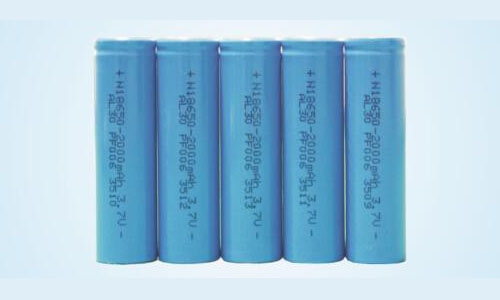We all know that Lithium-ion batteries have taken over the market like a storm. They are being used in most of the electronic equipment we see and use along with the electric vehicles. From chemistry, performance, cost, to safety, everything is offered by these batteries and hence their application area keeps on expanding.

The most common use of the Lithium-ion batteries these days is in the electric vehicles. Generally, the Lithium-ion batteries are lightweight but as the size of the machine that the battery has to operate increases, the battery weight increases as well.
From the shape of the Lithium-ion batteries to their size and weight, every feature matters a lot. So, here we are going to explore what kind of impact the increased weight of the Lithium-ion batteries have on the electric vehicles or any other equipment. Let's begin with an easy question.
How Much Do lithium-ion batteries Weigh?
It is hard to give the right answer to this question because the batteries are available in various shapes and sizes that also affect their weight. In 2014, Panasonic even created a lithium-ion battery of the smallest size ever. It is pin-shaped and has a diameter of 3.5 mm with a weight of only 0.6 grams.
As technology is supposed to be economical even for the large power appliances, the weight of these batteries is always a concern. Lucky for us, Lithium is the lightest of all metals and has the greatest electrochemical potential as well. As they offer the largest specific energy per weight, a small amount of Lithium does the job.
But the thing is, it is not just Lithium which is used to create the whole-cell pack and battery. There are other components as well that increases the weight of the Lithium-ion battery. So, if you want to know the weight of a lithium-ion battery, you will have to check the weight for specific equipment that it can operate.
How Many Grams Of Lithium Are In A Lithium-Ion Battery?
You might be wondering why you should know this. It is because of the fact that there are some restrictions over the batteries during air travel. So, if you are carrying equipment which is operated by a lithium-ion or lithium metal battery, then you should know the regulations that you have to follow. Whether it is cameras, laptops, mobile phones, camcorders, or any other device, the lithium content will decide if you are allowed to travel with that equipment or not.
For both lithium-ion and lithium metal batteries, the lithium content can't exceed:
· 2 grams for lithium metal and lithium alloy batteries
· 8 grams for lithium-ion batteries
Therefore, it becomes necessary to know the lithium content in the batteries. And you must know that from a theoretical perspective, there is no metallic lithium in lithium-ion batteries. So, the equivalent lithium content is calculated. The general formula to calculate the content is equal to:
Ah per cell x 0.3 gm x number of cells
So, if you want to ship a battery that is rated at 2500mAh per cell and has 6 cells, you will first convert the mAh to Ah by dividing it with 1000. So, you will have2.5 Ah. Now, by using the formula, we will calculate the lithium content as,
2.5 x 0.3 g x 6 = 4.5 grams of lithium in the whole battery
As you can see the lithium content generally don’t exceed the regulatory content so that you can continue using your equipment even when you are traveling.
How Does Weight Affect Lithium-Ion Battery?
As Lithium is a very dangerous element, a major focus is laid on its safety. And the addition of the safety mechanism typically increases its weight and limits the performance in some cases. The biggest influence of the increase in weight of the lithium-ion batteries is on electric vehicles.
The most popular lithium-ion batteries that are present in the electric automobiles are of 20-22 kWh. The overall weight of the battery is further increased by the use of the battery management systems, cooling and safety system, as well as by the assembly box for the battery modules.
· Using the Lithium-ion batteries in electric automobiles system will exceed the weight above 150 kg if you need to travel 100 km. If you are taking a big vehicle like the limousine to go 100 km, then the battery weight might increase up to 500 kg which is a lot.
· Generally, the weight of the battery in a two-seat electric vehicle is within the range of 100 to 15 kg.
· For the vehicles that have a higher capacity say 60 to 100 kWh, the battery pack weight might increase to 385 to 544 kg approximately.
The increased weight and capacity of the electric vehicles have several different impacts on the working of the vehicle.
· Deterioration in acceleration dynamics
· Increase in the load on the assemblies and their lifespan decreases
· The decrease in the amount of load that can be transported
· Change in the braking parameters
An in-depth analysis is performed on the increase in weight on electric vehicles. But the problem is not of a big extent in other equipment in which the lithium-ion batteries are used.
In other equipment, the increase in battery size simply increases the weight of around 1 kg to 10 kg. Whether it is the power tools like cordless drills, saws, sanders, hedge trimmers, etc. or it is other portable devices like mobile phones, laptops, tablets, game consoles, etc. every equipment uses the lithium-ion battery ideally. In portable devices, the weight never really increases to an extent where the equipment can't be used as a portable device anymore. But looking at the functioning of electric vehicles, model aircraft, and other big-size machines that use a lithium-ion battery, the increase is reasonable.
There is no denying the fact that lithium-ion batteries are one of the best inventions by humans. So, keep on using them and stay safe.



